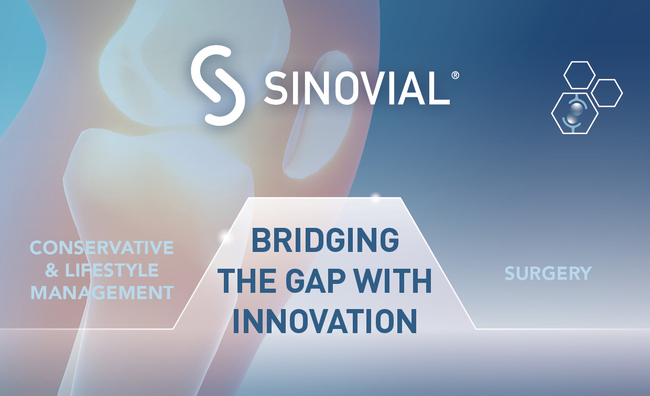As biotechnology advancements continue across the globe, funding these innovations requires a sustained effort from the respective companies involved. Investment types typically include equity investments, venture capital allocations, and public offerings. Each firm’s biotechnology focus and development stage influence the type of investments sought.
Leen Kawas, Ph.D. has her finger on the pulse of biotechnology investments. Dr. Kawas is Propel Bio Partners’ Managing General Partner, driving this biotechnology-focused venture capital firm’s work with biotech entrepreneurs. She focuses her efforts on start-up and early-stage companies, ideally with female and/or minority founders.
Prior to her Propel role, Dr. Kawas served as Athira Pharma, Inc.’s Chief Executive Officer (or CEO). During her tenure, she oversaw multiple drug development cycles and successfully managed the firm’s September 2020 Initial Public Offering (or IPO). Dr. Leen Kawas’ well-rounded biotechnology background enables her to see biotech investments from two perspectives.
Today, Dr. Leen Kawas believes venture capital funding has become an increasingly important part of the biotech investment landscape. She also acknowledges biotech firms’ challenges in obtaining the funding they need to conduct operations and perform relevant research. That said, Dr. Kawas states that investment candidates who perform their due diligence and meet certain key parameters are well-positioned for success.
Biotechnology Investment Acquisition Challenges
In the recent past, biotechnology public markets have not succeeded in breaking out of the investment doldrums. To illustrate, the S&P Biotechnology Select Industry Index began 2023 Q4 over 50 percent lower than its February 2021 high.
Collective biotechnology funding has also drastically decreased. During 2023’s first three quarters, IPO funding totaled only $3.4 billion compared to $16.0 billion in 2021’s first three quarters. IPO numbers have also trended downward. During 2023’s first three quarters, only 30 biotechnology firms launched an IPO compared to 114 IPOs during a similar 2021 timeframe.
Not surprisingly, over 250 biotechnology firms completed layoffs in 2022 and 2023. To stay afloat financially, most of these businesses fine-tuned project pipelines to conserve valuable cash.
RBC Capital Markets on United States Biotech Firms’ Challenges
In February 2023, RBC Capital Markets published its detailed biotechnology market analysis. This industry “deep dive” included RBC Capital Markets’ analysts’ belief that “expanded numbers of unproven early-stage recent IPO names” had set the stage for clinical trial and regulatory problems.
Two Major Negative Trends
The RBC Capital Markets analysts held guarded optimism about the biotechnology industry’s longer-term financial prospects. However, two key issues will likely cause concern for biotech firms seeking infusions of investment dollars.
More Biotech Firms Competing for the Same Funds
An increasing number of biotech firms are developing similar treatments for the same medical conditions. Clinical trial enrollment also presents several issues of concern. From this perspective, the RBC analysts advised biotech firms to evaluate their capital allocations, targeting funds toward “out of the box” therapies.
Diminished Investor Enthusiasm for Biotech Investments
The RBC Capital Markets analysts surveyed investors regarding planned 2023 biotech investments. A decreased number of investors planned to boost their biotech funding levels.
However, more than half of surveyed investors planned to remain involved in biotech investments during 2023. Only two percent planned to reduce their biotech investment activities during the period.
Biotech Venture Capital Firms Have Stepped into the Void
In any industry, higher-profile Series investments and IPOs frequently receive the majority of the investment spotlight. In the biotechnology industry, however, venture capital firms gained a higher industry profile with strongly increased investment levels in 2021 and 2022.
Platform Technologies Generate VC Funding Dollars
Continuing this trend, 2022 and 2023 saw more biotech venture capital firms invest in truly innovative concepts that could transform the industry. Dr. Leen Kawas highlights two platform technologies currently seeing increased biotech venture capital investment.
For perspective, platform technologies typically attract significant funding because they can easily apply to many conditions and/or treatment scenarios. To illustrate, in 2022 platforms collectively obtained $15.5 billion in biotech funding. This figure comprised over two-thirds of the collective biotech VC investment dollars for the year.
In comparison, 2022 VC investments only included $6.5 billion for asset-based companies focused on drug development. Finally, although VC funding has seen its own challenges, VC investors remain positive about the sector’s longer-term prospects.
Machine Learning-Driven Drug Discovery
From 2019 to 2022, venture capital investors funneled over $9 billion to start-ups built on machine learning (or ML)-driven drug discovery. To decrease the expensive drug discovery cycle, ML-enabled models can potentially identify molecules with better chances of success.
In turn, the ML-enabled models have “fit for purpose” molecular design for new disease engagements. Although most biotech companies haven’t exited the preclinical stage, VC investors continue to show interest in this technology.
The Growing Four-Component “Omics” Sector
By December 2022, the collective “Omics” sector had received more than $2.4 billion in VC funding. Since 2019, start-up “Omics” funding has almost tripled, with the COVID-19 pandemic further driving significant interest in these technologies.
The “Omics” umbrella includes four disciplines: genomics, metabolomics, proteomics, and transcriptomics. Here, gaining insights into cellular analysis can enable researchers to understand why diseases form. Equipped with this knowledge, scientists can develop targeted therapies.
Biotechnology Investment: From a VC Investor’s Perspective
The United States biotechnology VC investment sector is poised for more encouraging growth in 2024. From this perspective, Dr. Leen Kawas offers guidance for biotech start-ups and early-stage companies seeking VC investment capital. As Propel Bio Partners’ Managing General Partner, she describes what the firm seeks in investment candidates.
“Again, we’re not going into areas where it’s very busy, it’s product Number 10. No, it has to be first-in-class or best-in-class. Sometimes, you could have a product that is so clear, and from the outside, it could appear that this is an indication, that this is a product that is de-risked.
“[However], you’re not only approving the product and the mechanism of action of how the product is working. You’re also evaluating the clinical strategy, clinical development, and execution. Do you believe that this management can execute?” Dr. Kawas asked.
Managers Who Can “Think on Their Feet”
Dr. Leen Kawas also emphasizes that successful VC funding candidates boast managers who can navigate biotech’s fast-paced, multi-component decision process. “We spend a lot of time with management. The unique thing about [the] life science industry is you cannot make decisions in isolation. If you’re making a financial or a corporate decision, you have to think about the product development [and] the science.
“It’s always multifactorial decision-making. Do we believe that this CEO or this management group are going to be able to make effective decisions with shifts in the financial environment, with shifts in the regulatory environment, taking advantage of opportunities that are out there?” Dr. Kawas concluded.
The Quality of FDA Engagement
Next, Dr. Kawas referenced her interactions with U.S. Food and Drug Administration (or FDA) regulators. She noted that firms meeting certain parameters are better able to navigate the FDA’s drug development regulatory process.
“From my experience with the FDA and the regulators, they’re actually very open ─ as long as you’re showing in your plans that you are going to deliver a therapy that is, one, safe, second, improve the quality of life, the FDA will be very receptive. That’s exactly what we look for in companies, whether it’s public or private,” Dr. Leen Kawas remarked.
Dr. Leen Kawas Concludes with an Appeal to Entrepreneurs
As a successful entrepreneur herself, Dr. Leen Kawas is intimately aware of the challenges biotechnology start-ups and early-stage companies face. Putting technologies and logistics aside, Dr. Kawas offers heartfelt guidance that should help lead entrepreneurs in the right direction.
“I just want to tell the entrepreneurs out there, you tell your own story, you work on your mission, and you define your why. Keep going and you’ll be successful,” Dr. Leen Kawas explains.






